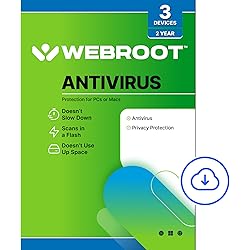How to Choose the Best VPN for Privacy and Security
Choosing the best VPN for privacy and security is one of the most important steps you can take to protect your personal information online. With cyber threats on the rise and digital surveillance becoming more sophisticated, finding a reliable Virtual Private Network (VPN) is essential for maintaining anonymity, securing sensitive data, and ensuring a safe browsing experience. But with so many options out there, how do you determine which VPN truly meets your privacy and security needs? This guide will walk you through the most critical features and considerations to help you make an informed decision.
—
Why Privacy and Security Should Be Your Top Priorities
Before diving into the specifics, it’s vital to understand why prioritizing privacy and security in a VPN matters. Every time you connect to the internet, your data is potentially vulnerable to interception by hackers, ISPs, government agencies, and other third parties. A trustworthy VPN mitigates these risks by encrypting your internet traffic and masking your real IP address, making it much harder for anyone to track your online activities.
—
Key Features to Look For in the Best VPN for Privacy and Security
1. Strict No-Logs Policy
One of the most critical aspects of any VPN is its logging policy. A strict no-logs policy means that the VPN provider does not store any information about your online activities, IP addresses, or connection timestamps. Always check a provider’s privacy policy and look for independent audits to verify their claims.
2. Strong Encryption Protocols
The core of any secure VPN is its encryption standard. Look for VPNs that utilize industry-leading protocols such as OpenVPN, WireGuard, or IKEv2/IPSec. Advanced Encryption Standard (AES) with 256-bit keys is the gold standard for data protection. High-level encryption ensures that, even if your data is intercepted, it remains unreadable to outsiders.
3. Kill Switch and DNS Leak Protection
A robust VPN should come equipped with a kill switch that instantly disconnects your device from the internet if the VPN connection drops. This prevents your real IP address and unencrypted data from leaking. DNS leak protection is equally important, ensuring your DNS queries are routed through the secure VPN tunnel rather than exposed to your ISP.
4. Jurisdiction and Legal Environment
The legal jurisdiction under which a VPN service operates has significant implications for your privacy. Opt for VPN providers located in privacy-friendly countries that do not enforce data retention laws or participate in intelligence-sharing alliances like the Five Eyes, Nine Eyes, or Fourteen Eyes.
5. Multi-Factor Authentication and Advanced Security Features
The best VPNs for privacy and security offer multi-factor authentication and advanced features like split tunneling, obfuscated servers, and malware blocking. These enhancements add extra layers of protection, further shielding your digital identity and personal data.
—
Additional Factors to Consider When Selecting a VPN
Performance and Server Network
While privacy and security are paramount, speed and performance should not be overlooked. A VPN with a large, well-distributed server network ensures stable connections, faster speeds, and the ability to bypass geographic restrictions without compromising your data integrity.
User Experience and Compatibility
Choose a VPN that provides intuitive apps for desktops, smartphones, and other devices you plan to use. Easy-to-navigate interfaces and reliable customer support can make a substantial difference in your overall experience, especially if you ever encounter technical issues.
—
How to Evaluate and Test a VPN for Privacy and Security
To ensure you’re truly getting the protection promised, it’s wise to:
– Read independent reviews and user feedback to find out about real-world performance and reliability.
– Test your VPN connection for IP, DNS, and WebRTC leaks using online tools.
– Check if the service has been independently audited by reputable cybersecurity firms.
– Take advantage of free trials or money-back guarantees to personally assess the service’s effectiveness before committing.
—
Final Thoughts: Make an Informed Choice
Ultimately, selecting the best VPN for privacy and security is about striking the right balance between robust protection, usability, and transparency. By focusing on independent audits, stringent no-log policies, reliable encryption, and privacy-friendly jurisdictions, you can greatly reduce your digital footprint and browse with confidence. Take the time to research, compare, and test various providers—your privacy is worth it.


